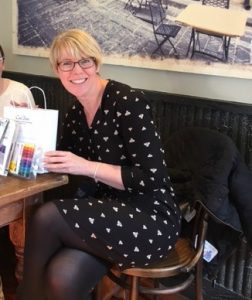Freelance copy-editors and proofreaders are not restricted to working with traditional publishers, and in the latest SfEP wise owls blog the parliament shares advice on how to gain work with non-publishers.
Margaret Hunter, Daisy Editorial
It continues to surprise me how many newbies to our profession lament the difficulty of getting their first paid jobs because they haven’t managed to secure work with traditional publishers. I guess that has something to do, perhaps, with a conventional notion of our profession as people busy putting red squiggly marks on books. But, if you think about it, the proofreader’s or editor’s oyster is anything that uses words. Perhaps it just needs some wider thinking?
In the real world, a great many members of the SfEP don’t spend all their time working on books, nor for traditional publishers. And the range of clients, things worked on and tasks paid for is wide indeed. Do an audit of your contacts, past employers and interests, and then list the types of things that get written, and you’ll already have a fair list of people to approach for potential work.
But to do this successfully you need to have the right mindset. What is it that you’re offering? What is it that your clients need? (Hint: they might not know!) What value can you add to your clients’ texts? Ah, now we’re getting somewhere.
Perhaps working for non-publishers won’t look the way you expected it to from your proofreading course or editing training. It’s not about taking a set of ‘rules’ or techniques you’ve learned and pushing your clients’ work into that shape. That would make our reading pretty boring and monochrome.
But the essence is the same. Our job is to help clients get their message across and to ‘smooth the reader’s path’ (see the SfEP FAQs).
In practice, that means you need to find clear, plain language ways of explaining what you do and how that can be of benefit to your clients. It means experimenting or being flexible with your working methods to find out what suits your particular niche.
And when you work out the value you are bringing to clients, you will realise that what you can bring to the table is immensely valuable, and should not be undersold.
Abi Saffrey
All but five months of my eight-year in-house career was spent working for ‘non-publishers’: business information providers and a non-governmental department body (quango). Each had its own (small) publishing team, and each followed editorial processes very similar to those used by traditional publishers. They may use terminology differently, and store and publish content in different ways, but the principles and the skills required are the same.
As a freelance, the main difference between working with non-publishers and working with publishers is the nature of the products you work on. There are rarely 100,000 words to deal with, but the publications are less likely to be one-offs: annual business reports, quarterly corporate magazines, weekly blog posts, press releases. Sometimes a cheerful, colourful staff magazine is just what’s needed to break up a dense academic social policy monograph.
To get work with non-publishers, you may need to market yourself differently – talking about what the outcome of your work is rather than the nitty-gritty details of what you do – but those companies do need your skills. They appreciate the value a knowledgeable and professional editor or proofreader can bring to their content, and to their brand.
Sue Browning
Working for non-publishers like businesses and charities, or even individuals, can be varied and interesting. Businesses often have deeper pockets than publishers, so the pay can be better too. In my experience, they usually pay promptly and with no need to chase (though with a bigger business you may have to accommodate their regular pay run). As to how to find them – I have found face-to-face networking to be the most common way to land business clients, and LinkedIn has also proved valuable – both of these have brought me work from small companies in my region, who often want to keep their spending local. More-distant clients tend to find me via my website. This is distinctly different from publishing clients, almost all of whom find me through the SfEP Directory.
Like indie authors, which we covered in an earlier post, non-publishers don’t necessarily know our editorial terms of art. In fact, they don’t care what it’s called, they just want their text to be correct, clear and professional. So it’s vital to establish the scope of the work. I’ve done everything from casting a quick eye over an email newsletter to what ended up being a complete rewrite (including research) of a large commemorative publication. It’s also essential to understand their brand voice (if they have one), but once you’ve established a good working relationship, they tend to give you pretty free rein, and they don’t want to be bothered with explanations or unnecessary questions, which means I can be quick and decisive.
I find it pays to be flexible in how you work. It happens that many of the individual jobs I receive are small (I’ve proofread text that was to appear on a mug), so I try to fit them in within a day. My payment model is different too, in that I usually charge by the hour rather than working out individual project fees, and I usually invoice monthly.
One of the potential downsides of working for larger businesses is that a document will often have many contributors, so you may find yourself working for too many ‘masters’ making last-minute and contradictory amendments. I try to solve this by insisting on being the last person to see the document, and not being lured into working on it in Google Docs at the same time as it is being written!
The parliament: Margaret Hunter, Abi Saffrey and Sue Browning







